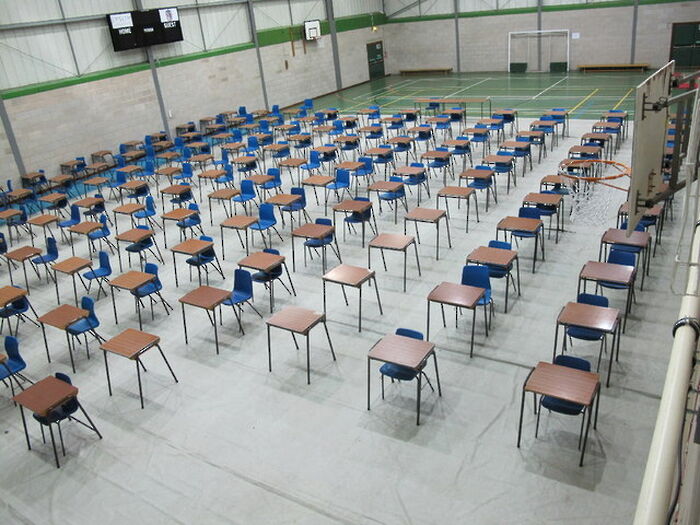George Osborne may be a hypocrite, but he’s right on education
There are many disparities in educational attainment, but the gap between the North and South of England needs more attention, argues Joe Farnworth

Educational inequality isn’t a new problem for the UK. While policies put in place by previous successive governments have attempted to reduce the attainment gap, the poorest children are on average two years behind their more affluent counterparts by the time they reach the end of secondary education. This gap further increases when you consider the north-south divide which lies as an undercurrent to British politics.
Educational attainment is one of the key contributors to social mobility. The fact is that in the UK, the difference between being born in London or the South East will determine your opportunities in life. A state sixth form college in Brighton, recently boasted 57 offers to Oxbridge. Whilst this should be applauded, that’s more than half of the offers given out for the entirety of the North East last year.
Enter George Osborne. When he’s not busy running a major newspaper, or lobbying for various international investment banks, he’s also head of the Northern Powerhouse Partnership (NPP), a new think-tank dedicated to eliminating the historic divide between the north and the south of England. Osborne stated in a recent NPP report that “education is perhaps the greatest challenge we face in the north”, a slightly hypocritical position for the man who oversaw the freeze in pupil spending during the Cameron years. His leadership resulted in the biggest fall in pupil spending in years. Osborne has obviously tried to rehabilitate his image in recent years, especially with his attacks on Theresa May’s government. This doesn’t take away from the fact that he belongs to a party which has overseen the attainment gap widening for the first time in decades.
Putting aside the inconsistencies inherent to George Osborne’s attitudes to education spending when in compared to outside government, the report makes for deeply concerning reading. The problems it identifies are key to the wider issues afflicting education today. Northern students on free school meals receive the worst GCSE results in the country, with a grade point score of only 39.9, which is 6.5 points less than similar students in London.
Not only that, but the attainment gap in early years education is 22% in the North compared to just 13% in London. The report recommends an investment of £300 million in disadvantaged areas in the North, earmarking the majority of it for Early Years. By the age of just 5, children in the North start to lag behind their southern peers in terms of educational attainment. Yet it isn’t just funding that will turn around the geographical disparity. There needs to be effective policy implementation and governmental focus on improving attainment in the North.
There have been examples in the past of marked reductions in attainment gaps in education, especially in terms of income inequality in London. In 2002, less than 22% of children on free school meals got 5 A* to C grades at GCSE in London. Figures for 2015 show that 48% now achieve the benchmark target. So, why has London improved so much?
According to a study by the LSE, the gradual improvements to the quality of schools in London starting in the late 90s can’t be ascribed to a single policy. Rather, a multitude of policies and renewed investments within Londonstarted to increase attainment amongst the poorest children.
However, one of the landmark policies of the last Labour government deserves special attention: The London Challenge. The Challenge employed advisors in some of London’s worst performing schools to improve attainment, with local authorities working together to identify problems. This wasn’t just about funding, but facilitating a culture shift in schools. And it worked. The attainment gap in some London boroughs, even those which have pockets of severe deprivation, has been reduced.
Obviously, there isn’t a simple answer to the problem of the attainment gap between the North and the South (read: London), but what is clear is that it requires more funding than the government is currently offering. If we want to be seen as a country which rewards talent and ensures everyone gets an equal start in life, we need to drastically improve our education system
 Features / Should I stay or should I go? Cambridge students and alumni reflect on how their memories stay with them15 December 2025
Features / Should I stay or should I go? Cambridge students and alumni reflect on how their memories stay with them15 December 2025 News / Dons warn PM about Vet School closure16 December 2025
News / Dons warn PM about Vet School closure16 December 2025 News / Cambridge study finds students learn better with notes than AI13 December 2025
News / Cambridge study finds students learn better with notes than AI13 December 2025 News / News In Brief: Michaelmas marriages, monogamous mammals, and messaging manipulation15 December 2025
News / News In Brief: Michaelmas marriages, monogamous mammals, and messaging manipulation15 December 2025 Comment / The magic of an eight-week term15 December 2025
Comment / The magic of an eight-week term15 December 2025










